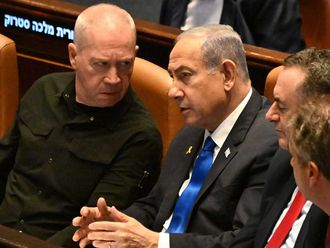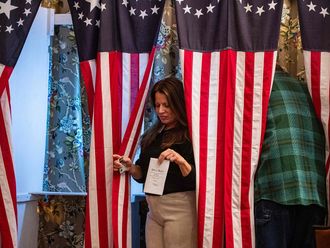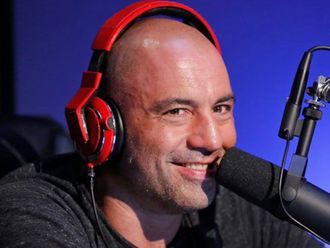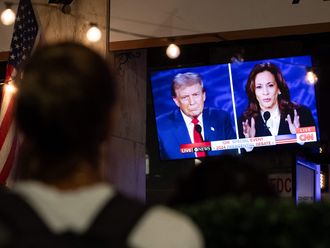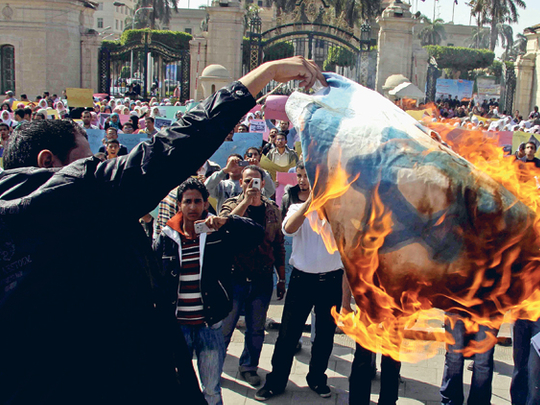
Cairo: An Egyptian football team's proposed visit to occupied Jerusalem later this month for a friendly match with Palestinians has triggered controversy and drawn comparisons with a normalisation of ties with Israel.
The visit by Egypt's Olympic squad is being considered upon a request from the Palestinian Football Association as part of planned celebrations for Palestinian Land Day, which commemorates the anniversary of an all-out strike staged in 1976 against Israel's occupation of vast tracts of Palestinian land.
"The upcoming visit will mean that the Egyptian players will land at an Israeli airport with their passports having an Israeli visa," said cleric Shaikh Mustafa Hussain.
"Thus, the visit will signal Muslims' acceptance of Israel's occupation of Jerusalem," Hussain told Gulf News. "If it is necessary for the team to make the visit, why shouldn't they go to the Gaza Strip to show solidarity with its people who are suffering under a relentless Israeli blockade?"
Egypt was the first Arab country to sign a peace treaty with Israel in 1979. But anti-Israel sentiment still runs high in the country, the Arab world's most populous.
Thousands of university students have kept up protests against an Israeli decision to include two mosques in the West Bank on a list of national heritage sites and the entry of Israeli police into Al Aqsa Mosque compound in occupied Jerusalem.
The Egyptian Foreign Ministry has been notified of the soccer team's proposed visit after the Egyptian Football Association and its Palestinian equivalent made necessary arrangements, but the ministry was not directly involved, according to sources.
Muslim members of the team are expected to pray at Al Aqsa Mosque, Islam's third holiest site, while their Christian compatriots will go to the Church of Sepulchre during the trip, which is due to start on March 28, Egyptian Football Association officials said.
They added that the association has sought separate entry permits from the Israeli embassy in Cairo. "Thus, their passports will not bear the Israeli visa stamp," they explained.
Palestinian visas
A Palestinian official, however, said the Egyptian team will get permits from the Palestinian authorities in the West Bank. "They will not get Israeli visas," chairman of the Palestinian Football Association Ameen Al Rajoub told the Egyptian independent newspaper Al Masri Al Youm. "The visit to Jerusalem does not mean normalisation [of ties] with Israel. The Israeli occupiers do not want Arabs to visit Jerusalem."
Al Rajoub added that the game would be held around 100 metres away from a controversial wall built by Israel.
The visit has, meanwhile, drawn sharp criticism from the Muslim Brotherhood in Egypt, a banned opposition group that nevertheless wields tremendous power. Its members, elected as independents in the parliament, have filed protests with Prime Minister Ahmad Nadeef and chairman of the governmental National Council for Sports, Hassan Saqr, over the visit.
"Going to Jerusalem means that the team will have to apply for Israeli visas," said Ebrahim Abu Ouf, an Islamist MP.
"This visit will offer a reward to the Zionist enemy who builds tunnels under Al Aqsa Mosque in order to demolish it. Moreover, it will imply recognition of Israel's control of Jerusalem. We should be careful not to fall into the trap of normalisation with Israel on the excuse of visiting Al Aqsa Mosque or other holy sites in [occupied] Jerusalem," he added.
The controversy arises a few weeks after Egypt's Press Syndicate, an independent union, ordered that Hussain Serag, a deputy editor of the government-owned magazine October, be suspended from his job for three months for visiting Israel 25 times and meeting Israeli officials and businessmen.
Serag is an expert in Israeli affairs and has already translated into Arabic several Hebrew books. The decision was the first to be made by the union since it banned contacts with the Israelis in 1985. The Press Syndicate also reprimanded Hala Mustafa, the editor of the monthly magazine Democratiya (Democracy) published by the state-run press institution Al Ahram, for meeting former Israeli ambassador Shalom Cohen in her office in Cairo last year.
Mustafa, a member of President Hosni Mubarak's National Democratic Party, was quoted in the local press as saying that she was not unaware of the union's ban on contacting Israelis.


